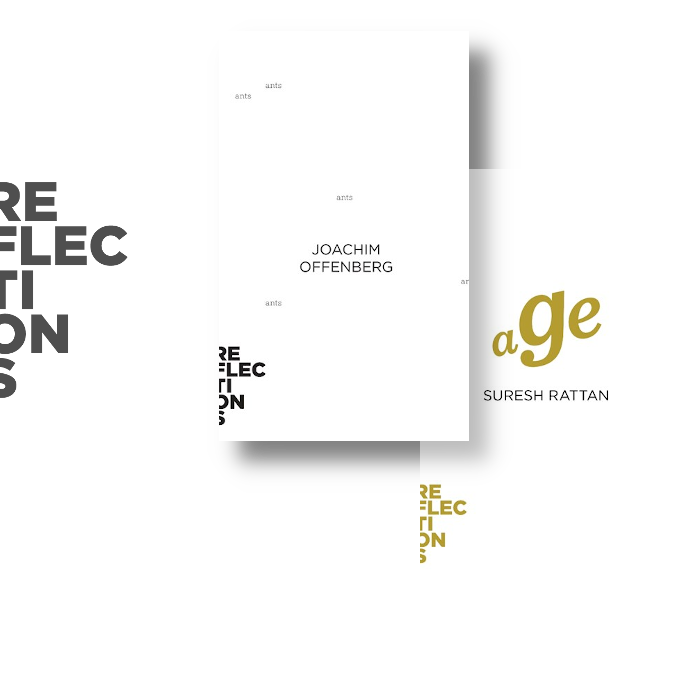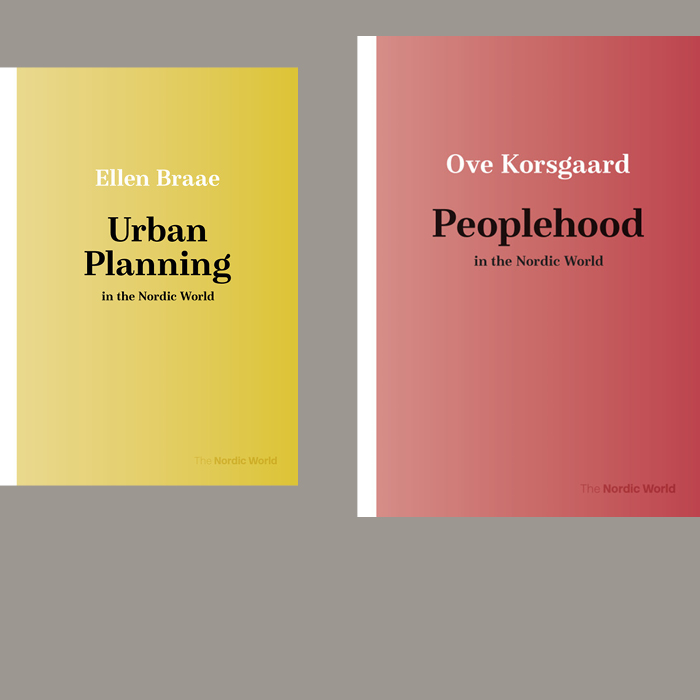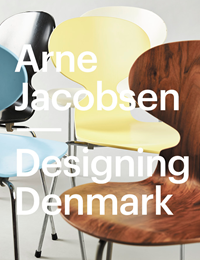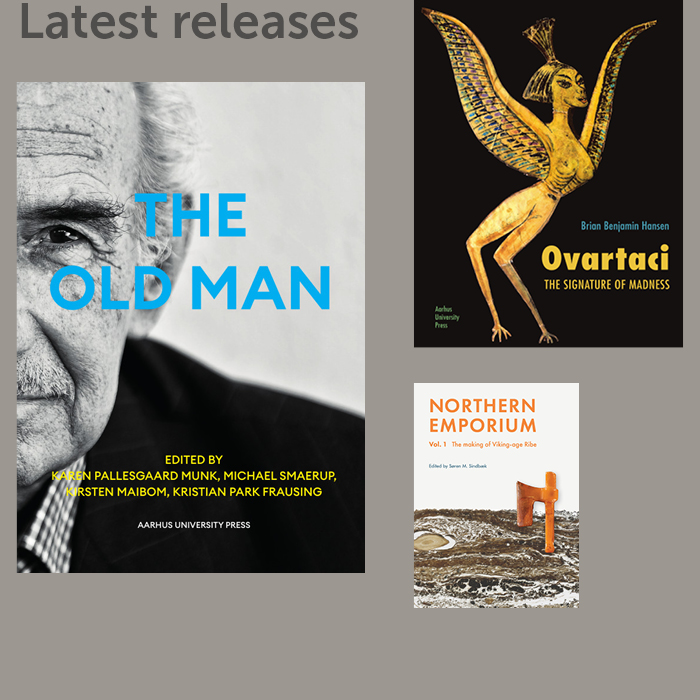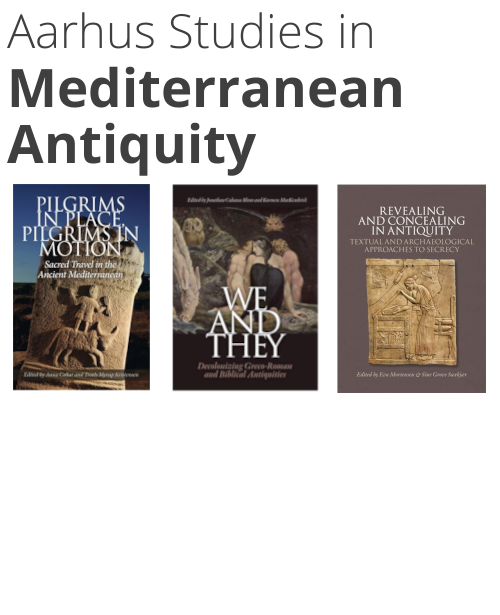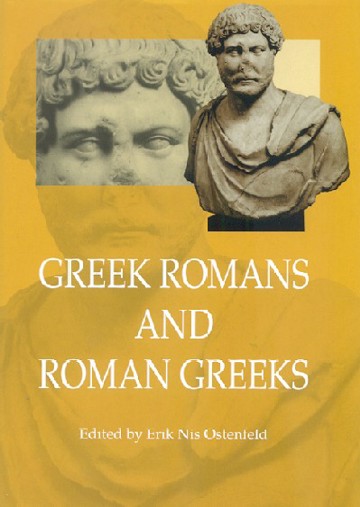
Greek Romans and Roman Greeks
Studies in Cultural Interaction
A part of the series Aarhus Studies in Mediterranean Antiquity (3) , and the subject areas Classical studies and Archaeology (classical)
Out of stock
Edited by
Erik Nis Ostenfeld
With contributions by
Ewen Bowie,
Victor Castellani,
Paolo Desideri,
Anne Malling Eriksen,
Jaap-Jan Flinterman,
Renee Forsell,
Joseph Geiger,
Jakob Munk Højte,
Arja Karivieri,
Kalle Korhonen,
R. Anthony Kugler,
Sophie Lalanne,
Lisa Nevett,
Luigi Senzasono,
Philip A. Stadter,
Francis B. Titchener,
Helene Whittaker and
Anthon Xenophontov
More about the book
About the book
In its first three centuries the Roman Empire expanded politically at the same time as Greek culture was enjoying its heyday. While this created tensions, it also occasioned many productive impulses, which were mirrored in different branches of cultural life.
In this collection of papers an assembled team of international scholars from the fields of philology, the history of ideas, literature, epigraphy, archaeology and history explores the intercultural aspects of that thriving period.
Lisa Nevett looks at the extent to which individual households and especially attitudes to women changed under Roman control. She presents archaeological evidence of patterns of social behaviour and concludes that a relaxation of restrictions on women took place from the later Hellenistic period onwards, prior to the arrival of the Romans.
Paolo Desideri surveys Greek historiographical literature of the second century AD to find a key to Greek mentality and political ideology in the late Roman Empire. The Greeks did not have to give up their civilization and identity; Appian and Cassius Dio even created the idea of a Hellenistic rather than a Roman Empire.
Philip Stadter argues that Plutarch in Lives is counselling the elite class of the Roman Empire and that Tiberius Gracchus in particular would have provided a usefull lesson, e.g., for the emperor Hadrian.
Ewen Bowie explores the literary tastes of Hadrian in Latin and, particularly, Greek poetry, including an examination of ancient sources to gain insight into his preferences, his own compositions and some of the poems composed by his friends or ministers.
Table of contents
Erik Nis Ostenfeld and Karin Blomqvist, Introduction
I. Archaeological Studies
Helene Whittaker, Some Reflections on the Temple to the Goddess Roma and Augustus on the Acropolis at Athens
Arja Karivieri, Just one of the Boys - Hadrian in the Company of Zeus, Dionysus and Theseus
Jakob Højte, Cultural Interchange? The case of Honorary Statues in Greece
Renee Forsell, The Argolid Countryside in the Roman Period
Kalle Korhonen, Three Cases of Greek/Latin Imbalance in Roman Syracuse
Lisa Nevett, Continuity and Change in Greek Households under Roman Rule: The Role of Women in the Domestic Context
II. Philology, History and History of Ideas:
Luigi Senzaso, Some Influences of Greek Poetry in the first Choral Song of Seneca's Phaedra (274-357)
Anne Malling Eriksen, Redefining Virtus - the Settings of Virtue in the works of Velleius Paterculus and Lucan
Philip A. Stadter, Plutarch's Lives and Their Roman Readers
Frances B. Titchener, Plutarch and Roman(ized) Athens
Victor Castellani, Plutarch's 'Roman' Women
R. Anthony Kugler, The Ox, the Crow, and the Orator: Image, Allegory, and Motive in Dio Chrysostom's Second Tarsian Oration (Oration 34)
Ewen Bowie, Hadrian and Greek Poetry
Jaap-Jan Flinterman, The Self-portrait of an Antonine Orator: Aristides, Or. 2.429 ff.
Anthon Xenophontov, Polyaenus: A Greek Writer as a Job-seeker in the Roman World
Paolo Desideri, The Meaning of Greek Historiography of the Roman Imperial Age
Sophie Lalanne, Hellenism and Romanisation: A comparison between the Greek novels and the Tale of Psyche in Apuleius' Metamorphoses
Joseph Geiger, Language, Culture and Identity in Ancient Palestine
Abbreviations
General Bibliography
Index rerum
Index nominum
Index locorum
Notes on Contributors
Sanne Lind Hansen
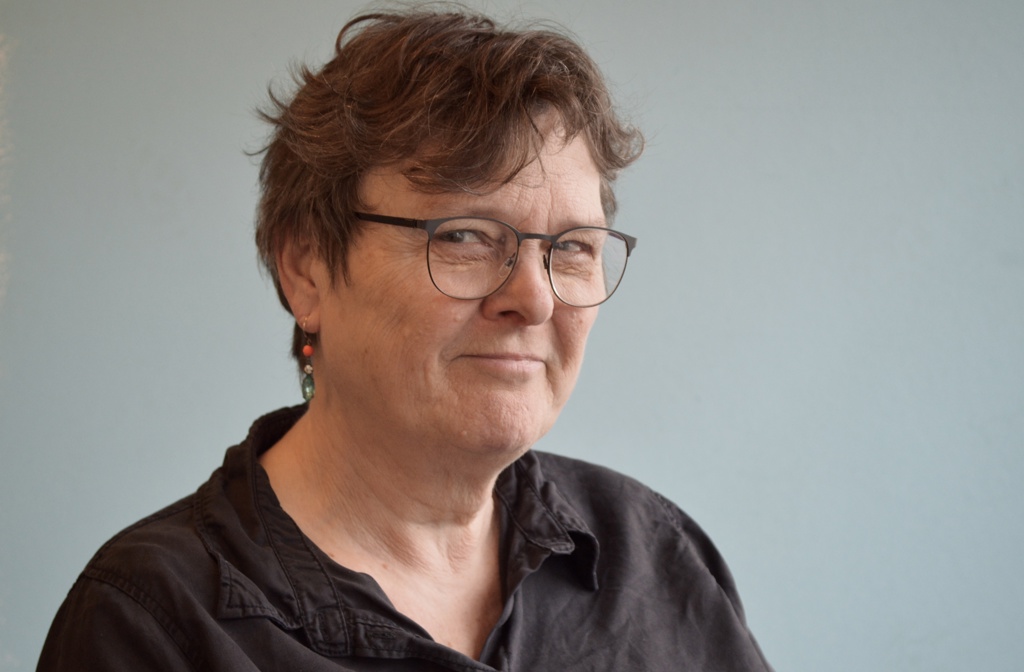
MA in ethnography and classical archeology and trained at the Danish School of Journalism. Sanne primarily works with anthropology, archeology and early history. She is also responsible for foreign sales and commission agreements, and she was once employed at the National Museum (Antiquities).
